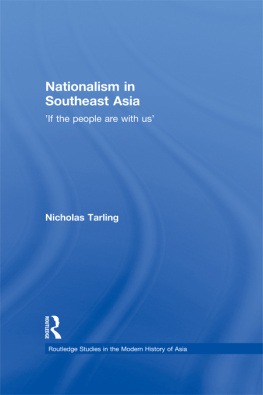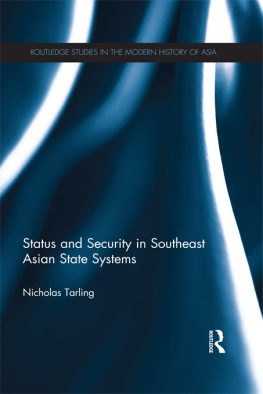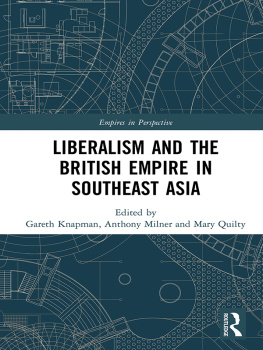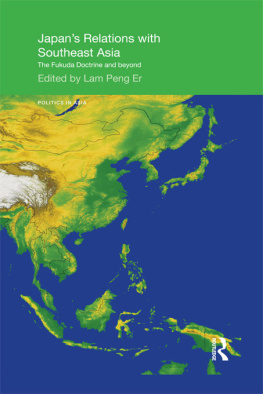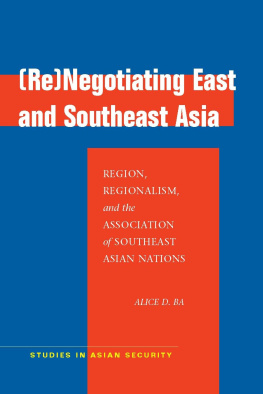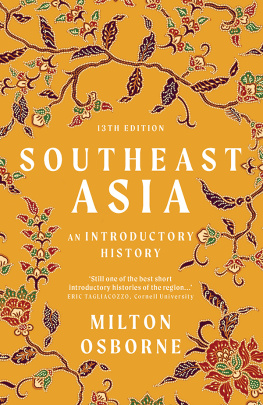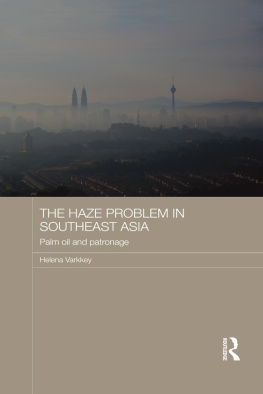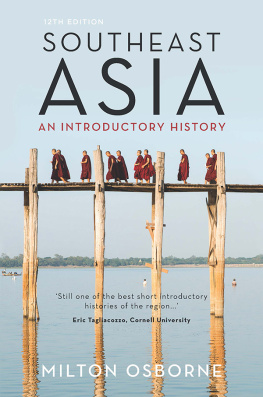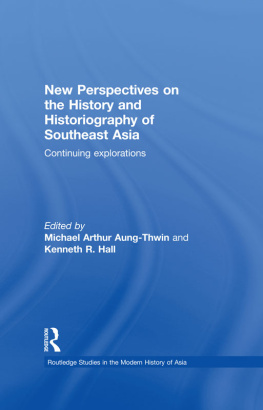
Nationalism in Southeast Asia
Nationalism in Southeast Asia seeks a definition of nationalism through examining its role in the history of Southeast Asia, a region rarely included in general books on the topic. By developing such a definition and testing it out, Nicholas Tarling hopes at the same time to make a contribution to Southeast Asian historiography and to limit its ghettoisation.
The state-building of the colonial phase is seen as a directed process with unexpected outcomes: it helped to create and to provoke opposition that took the form of nationalist movements. Tarling goes on to consider the role of nationalism in the nation-building of the postcolonial phase, and its relationship both with the democratic aspirations associated with the winning of independence and with the authoritarianism of the closing decades of the twentieth century.
Finally, Tarling offers comment on the new nationalisms that authoritarianism has helped to provoke, and their prospects, as well as those of the nation-states, in the current phase of globalisation.
Nicholas Tarling is a Fellow of the New Zealand Asia Institute, The University of Auckland.
RoutledgeCurzon studies in the modern history of Asia
1 The Police in Occupation Japan
Control, corruption and resistance to reform
Christopher Aldous
2 Chinese Workers
A new history
Jackie Sheehan
3 The Aftermath of Partition in South Asia
Tai Yong Tan and Gyanesh Kudaisya
4 The AustraliaJapan Political Alignment
1952 to the present
Alan Rix
5 Japan and Singapore in the World Economy
Japans economic advance into Singapore, 18701965
Shimizu Hiroshi and Hirakawa Hitoshi
6 The Triads as Business
Yiu Kong Chu
7 Contemporary Taiwanese Cultural Nationalism
A-chin Hsiau
8 Religion and Nationalism in India
The case of the Punjab
Harnik Deol
9 Japanese Industrialisation
Historical and cultural perspectives
Ian Inkster
10 War and Nationalism in China
19251945
Hans J. van de Ven
11 Hong Kong in Transition
One country, two systems
Edited by Robert Ash, Peter Ferdinand, Brian Hook and Robin Porter
12 Japans Postwar Economic Recovery and AngloJapanese Relations, 19481962
Noriko Yokoi
13 Japanese Army Stragglers and Memories of the War in Japan, 19501975
Beatrice Trefalt
14 Ending the Vietnam War
The Vietnamese Communists perspective
Ang Cheng Guan
15 The Development of the Japanese Nursing Profession
Adopting and adapting western influences
Aya Takahashi
16 Womens Suffrage in Asia
Gender, nationalism and democracy
Louise Edwards and Mina Roces
17 The AngloJapanese Alliance, 19021922
Phillips Payson OBrien
18 The United States and Cambodia, 18701969
From curiosity to confrontation
Kenton Clymer
19 Capitalist Restructuring and the Pacific Rim
Ravi Arvind Palat
20 The United States and Cambodia, 19692000
A troubled relationship
Kenton Clymer
21 British Business in Post-Colonial Malaysia, 195770
Neo-colonialism or disengagement?
Nicholas J. White
22 The Rise and Decline of Thai Absolutism
Kullada Kesboonchoo Mead
23 Russian Views of Japan, 17921913
An anthology of travel writing
David N. Wells
24 The Internment of Western Civilians under the Japanese, 19411945
A patchwork of internment
Bernice Archer
25 The British Empire and Tibet
19001922
Wendy Palace
26 Nationalism in Southeast Asia
If the people are with us
Nicholas Tarling
Nationalism in Southeast Asia
If the people are with us
Nicholas Tarling

First published 2004
by RoutledgeCurzon
2 Park Square, Milton Park, Abingdon, Oxon OX14 4RN
Simultaneously published in the USA and Canada
by RoutledgeCurzon
270 Madison Ave, New York, NY 10016
This edition published in the Taylor & Francis e-Library, 2004.
RoutledgeCurzon is an imprint of the Taylor & Francis Group
2004 Nicholas Tarling
All rights reserved. No part of this book may be reprinted or reproduced or utilised in any form or by any electronic, mechanical, or other means, now known or hereafter invented, including photocopying and recording, or in any information storage or retrieval system, without permission in writing from the publishers.
British Library Cataloguing in Publication Data
A catalogue record for this book is available from the British Library
Library of Congress Cataloging in Publication Data
A catalog record for this book has been requested
ISBN 0-203-33024-2 Master e-book ISBN
ISBN 0-415-33476-4 (Print Edition)
For Tony Reid
If the people are with us we can be assured that if we do not triumph today, we shall do so tomorrow or in the future.
Apolinario Mabini
Contents
Part I
Definitions and chronologies
The political utility of the national idea is not matched by its analytical clarity.
James Mayall
1 Definitions
Absurdly ambitious, this book has two main purposes. One is to seek an encompassing definition of nationalism. That is, of course, not a new task, though a heavy one, and there have been many attempts at it. The novelty of the present attempt lies though Antlov and Tonnesson have tried to test the existing theory against non-European uses
Juxtaposing the possible definitions of the phenomenon with a variety of experiences in a region rarely explored in the general works that deal with it should prove a worthwhile venture, not only from an historiographical point of view, but from a still wider perspective. A world in which globalisation has at the very least speeded up is still a world of states, and the states are conceived as nations. A clearer understanding of nationalism and more apt applications of the term must be of wider benefit in understanding that world, if not predicting its future.
The second purpose mirrors the first. If studying Southeast Asia may help us understand nationalism better, that may at the same time contribute to a better understanding of Southeast Asia itself. One means by
At the same time, pursuing a definition of nationalism may contribute to the continued study of Southeast Asia through comparative study of its own diversity. That diversity has challenged historians who have attempted to write the history of the region. How are they to bind their work together? Some have tried to take diversity itself as a theme. Others have juxtaposed a series of narratives or picked a range of topics. A mixture of such strategies has also been attractive, based, more or less explicitly, on a comparative approach. The obvious danger of comparative history is to push comparison too far. But it has been helpful in explaining the distinctive histories of the various parts of the region, the distinctive features of their societies, religions, and political structures. A useful definition of nationalism makes for a sharper use of the comparative method and thus for a better understanding of the nationalism of its component parts.
Next page
